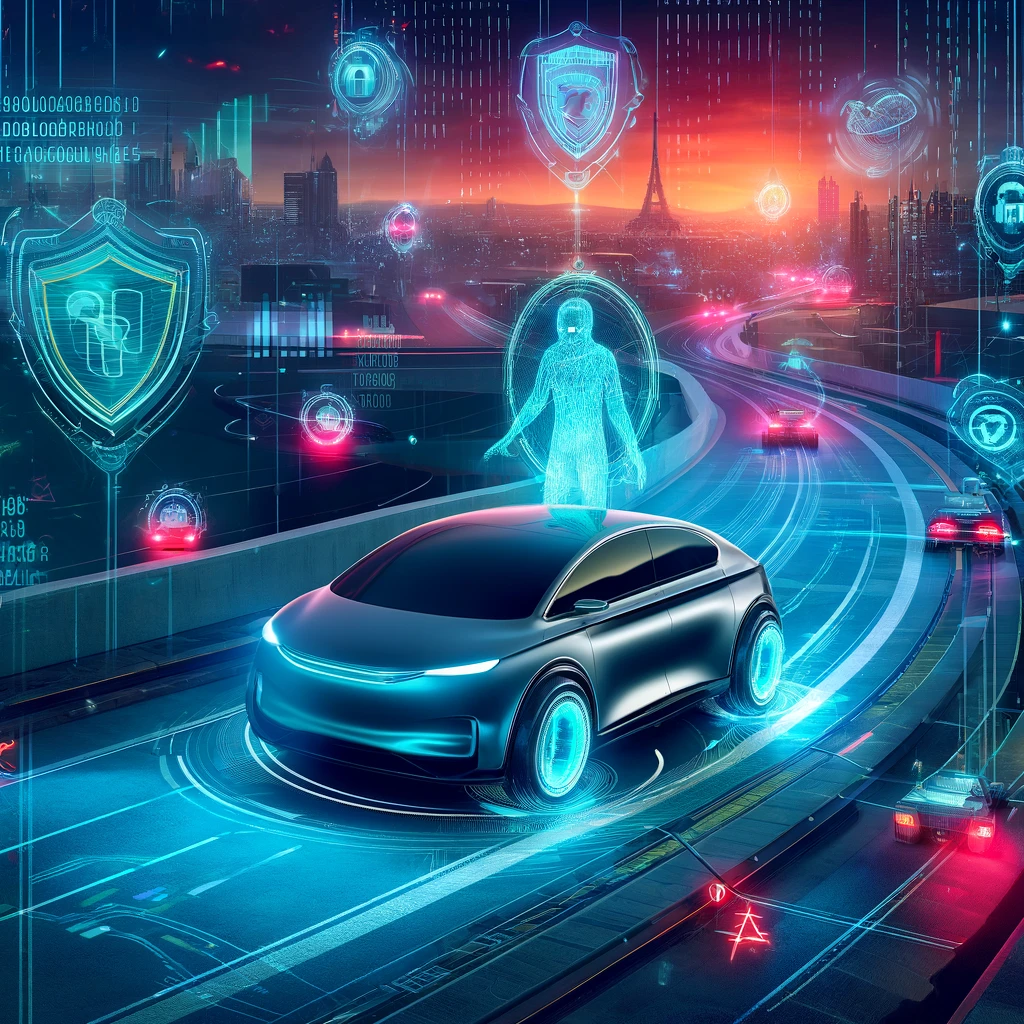
Autonomous Vehicles (AVs) are revolutionizing the transportation industry, promising safer roads, increased efficiency, and improved mobility for millions of people worldwide. However, with the proliferation of connected and automated cars comes a new frontier of cybersecurity challenges. As these vehicles become increasingly reliant on software, sensors, and communication networks, they also become vulnerable to cyber threats that could compromise safety, privacy, and even national security. In this blog post, we’ll explore the potential cyber threats to autonomous vehicles and discuss strategies for protecting connected and automated cars from cybersecurity risks.
- Hacking and Remote Control: One of the most concerning cyber threats to autonomous vehicles is the possibility of hacking and remote control by malicious actors. Hackers could exploit vulnerabilities in vehicle software or communication systems to gain unauthorized access and take control of essential functions, such as steering, braking, or acceleration. This could lead to accidents, injuries, or even fatalities on the road.
- Data Privacy and Security: Autonomous vehicles generate vast amounts of data, including location information, sensor data, and personal preferences. Protecting this data from unauthorized access, manipulation, or theft is crucial to safeguarding user privacy and preventing identity theft or fraud. Additionally, ensuring the secure transmission and storage of sensitive data is essential to prevent data breaches and unauthorized access.
- Malware and Ransomware Attacks: Like traditional computers and smartphones, autonomous vehicles are susceptible to malware and ransomware attacks. Malicious software could disrupt vehicle operations, disable safety features, or compromise sensitive systems. Ransomware attacks could also hold vehicles or their occupants hostage, demanding payment in exchange for restoring functionality or releasing control of the vehicle.
- Supply Chain Risks: The complex supply chain involved in manufacturing autonomous vehicles introduces additional cybersecurity risks. Malicious actors could infiltrate components or software used in vehicle production, introducing backdoors or vulnerabilities that could be exploited later. Ensuring the integrity and security of the entire supply chain is critical to mitigating these risks and preventing compromise at any stage of the manufacturing process.
- Denial-of-Service (DoS) Attacks: Denial-of-Service attacks, which overwhelm a vehicle’s communication systems with excessive traffic or requests, could disrupt connectivity and render autonomous vehicles unable to communicate with other vehicles, infrastructure, or central control systems. This could impede traffic flow, create safety hazards, or even facilitate coordinated attacks on transportation networks.
To address these cyber threats and protect connected and automated cars, stakeholders must adopt a multi-layered approach to cybersecurity. This includes:
- Secure Software Development: Implementing secure coding practices and rigorous testing throughout the software development lifecycle to identify and remediate vulnerabilities before they can be exploited.
- Encryption and Authentication: Encrypting communication channels and implementing robust authentication mechanisms to prevent unauthorized access and tampering of data and control commands.
- Continuous Monitoring and Threat Detection: Deploying intrusion detection systems and anomaly detection algorithms to monitor vehicle systems for suspicious activity and respond to potential cyber threats in real-time.
- Regulatory Compliance and Standards: Establishing cybersecurity regulations and standards specific to autonomous vehicles to ensure that manufacturers, suppliers, and service providers adhere to minimum security requirements and best practices.
- Collaboration and Information Sharing: Fostering collaboration between industry stakeholders, government agencies, cybersecurity researchers, and law enforcement to share threat intelligence, best practices, and incident response strategies.
- Cybersecurity Training and Awareness: Educating vehicle manufacturers, operators, and users about cybersecurity risks and best practices for protecting connected and automated cars from cyber threats.
In conclusion, while Autonomous Vehicles offer significant potential benefits in terms of safety, efficiency, and convenience, they also present new cybersecurity challenges that must be addressed. By implementing proactive cybersecurity measures and adopting a holistic approach to risk management, we can mitigate the threats posed by malicious actors and ensure that connected and automated cars remain safe, secure, and reliable for all users.

Penetra Cybersecurity is at the forefront of defending the digital frontier, providing cutting-edge solutions to protect businesses and organizations from the ever-evolving threats of the cyber world. Established with a mission to create a safer internet for everyone, Penetra leverages a blend of advanced technology, expert knowledge, and proactive strategies to stay ahead of cybercriminals.
Ready to take the next step towards a more secure future? Schedule a consultation with us today and discover how we can help protect what matters most to you. Don’t wait until it’s too late—with Penetra Cybersecurity, your business isn’t just secure; it’s imPenetrable.




